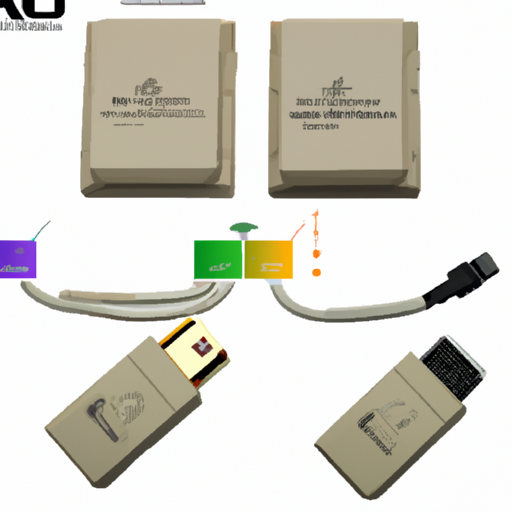
Fixed inductors are passive components widely used in electronic circuits, mainly for energy storage, filtering, oscillation, and tuning. They play an important role in power management, signal processing, wireless communication, automotive electronics, and other fields. With the continuous development of electronic technology, the application scope of fixed inductors is expanding, making them an indispensable component in modern electronic devices.
Product standards are important for ensuring the quality, performance, and safety of products. For fixed inductors, establishing and adhering to relevant product standards not only helps improve product consistency and reliability but also promotes international trade, reduces production costs, and enhances the competitiveness of enterprises. Therefore, understanding the product standards of fixed inductors is crucial for manufacturers, designers, and users.
The working principle of fixed inductors is based on electromagnetic induction. When current passes through the inductor, a magnetic field is generated around it, storing energy. When the current changes, the magnetic field also changes, resulting in an induced electromotive force in the inductor. This characteristic allows inductors to perform functions such as filtering, energy storage, and tuning in circuits.
Fixed inductors can be classified according to different standards, including:
Air-core inductors: Inductors without a core, typically used in high-frequency circuits with low losses.
Iron-core inductors: Inductors with added core material to increase inductance and energy storage capacity, suitable for low-frequency circuits.
Effect of magnetic materials: Different magnetic materials can affect the performance of inductors, such as ferrites, silicon steel, etc.
IEC 60068: Environmental testing standards, specifying the performance requirements of inductors under different environmental conditions, including temperature, humidity, vibration, etc.
IEC 60115: Measurement methods for passive components, providing test methods for the electrical characteristics of inductors, including inductance value, DC resistance, etc.
ISO 9001: Quality management system standard, ensuring that enterprises can continuously provide products that meet customer requirements during the production process.
ISO 14001: Environmental management system standard, helping enterprises reduce their impact on the environment during the production process.
GB/T 10228: Technical requirements for fixed inductors, specifying the basic performance indicators and test methods of inductors.
GB/T 10194: Measurement methods for inductors, providing test standards for the electrical characteristics of inductors.
JB/T 10472: Test methods for inductors, mainly focusing on performance testing of inductors in the mechanical industry.
IPC Standards: Involving the design and manufacturing of printed circuit boards and inductors, ensuring the reliability and manufacturability of electronic components.
AEC-Q200: Reliability standards for automotive electronic components, ensuring the stability and durability of inductors in automotive environments.
The testing methods for fixed inductors mainly include:
DC resistance testing: Measuring the DC resistance of inductors to evaluate their conductivity performance.
AC inductance testing: Measuring the inductance value of inductors using AC signals, usually tested using an LCR meter.
Temperature characteristic testing: Evaluating the performance changes of inductors at different temperatures to ensure their stability in practical applications.
When evaluating the performance of fixed inductors, the main focus is on the following indicators:
Inductance value: The main parameter of inductors, indicating their energy storage capacity.
Q factor: Quality factor, indicating the energy loss of inductors. A higher Q factor indicates better performance of the inductor.
Self-resonant frequency: The self-resonant frequency of inductors is the resonance frequency under specific conditions, affecting their application in circuits.
Temperature coefficient: Indicates the sensitivity of the inductance value to temperature changes. A smaller temperature coefficient indicates more stable performance of the inductor.
Quality control is crucial in the production process of fixed inductors, mainly including the following aspects:
Material selection: High-quality raw materials are the foundation for producing high-performance inductors, and strict control over the source and quality of materials is required.
Production process control: By optimizing the production process, ensure the quality of each link, and reduce the production of non-conforming products.
Certification bodies and processes: Product testing and certification by third-party certification bodies to ensure products comply with relevant standards.
Common certification marks: Such as CE, UL, and other certification marks, can enhance the market competitiveness of products.
With the popularity of electronic products and technological advancements, the market demand for fixed inductors continues to grow. Especially in areas such as new energy vehicles, 5G communication, and smart homes, the demand for high-performance inductors is increasing.
The rapid development of technology drives continuous improvement in the design and manufacturing processes of fixed inductors, prompting the updating and enhancement of relevant standards to adapt to the application of new technologies.
With the increasing environmental awareness, more countries and regions are implementing strict environmental regulations, requiring electronic components to reduce their impact on the environment during production and use. This places higher demands on the material selection and production processes of fixed inductors.
Fixed inductors, as important passive components in electronic circuits, have significant implications for ensuring product quality, performance, and safety through the establishment and implementation of product standards. With changing market demands and technological advancements, the product standards for fixed inductors will continue to evolve and improve. In the future, manufacturers need to closely monitor industry trends, actively adapt to new standards, and enhance product competitiveness and market share.
- IEC 60068: Environmental Testing
- IEC 60115: Measuring Methods for Passive Components
- GB/T 10228: Technical Requirements for Fixed Inductors
- ISO 9001: Quality Management Systems
- AEC-Q200: Reliability Standards for Automotive Electronic Components
The above content provides a comprehensive analysis and discussion of the product standards for fixed inductors, covering various aspects from basic concepts to market trends. It is hoped that this will provide valuable reference for relevant practitioners.